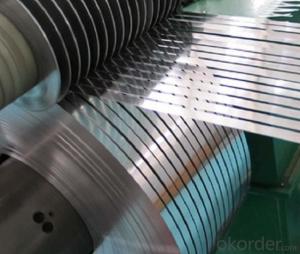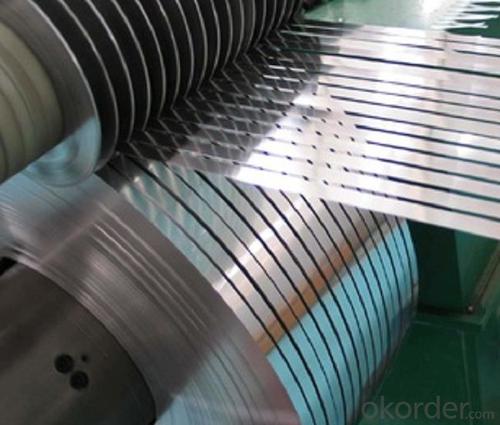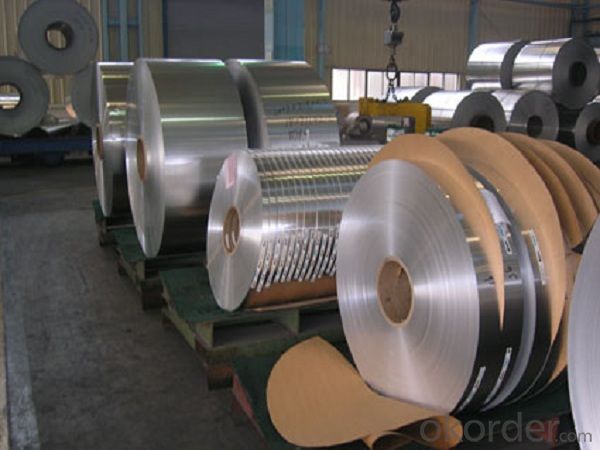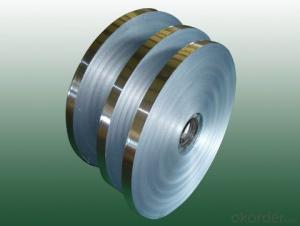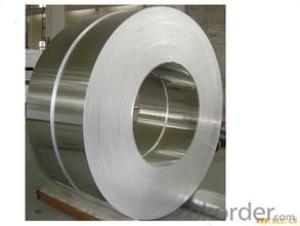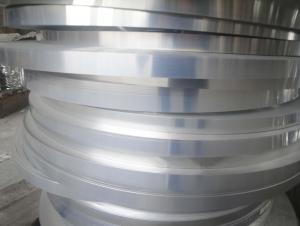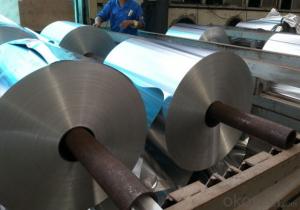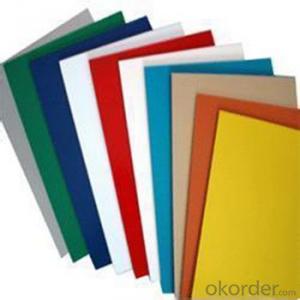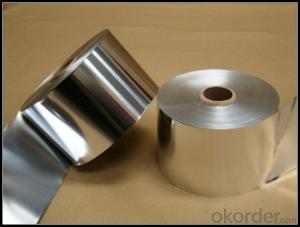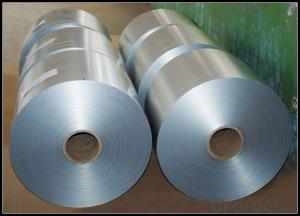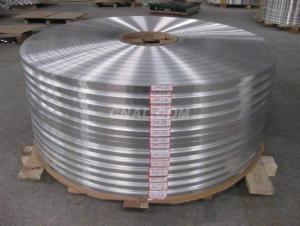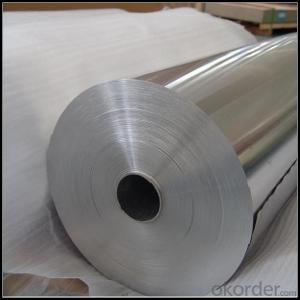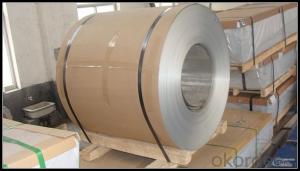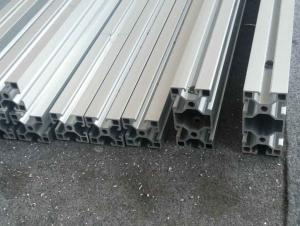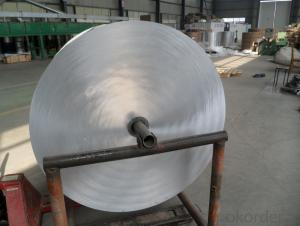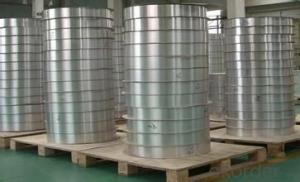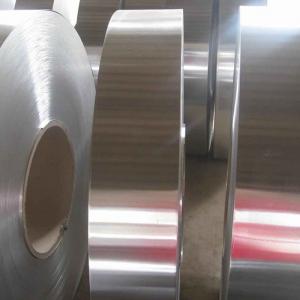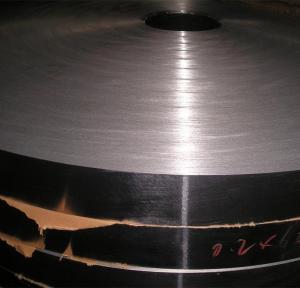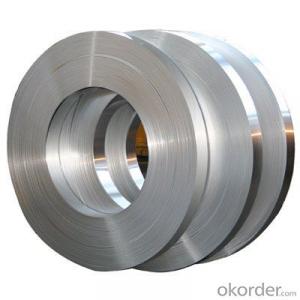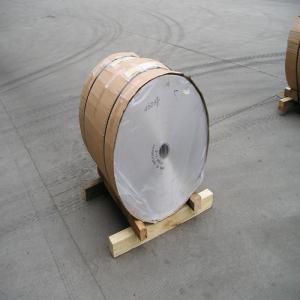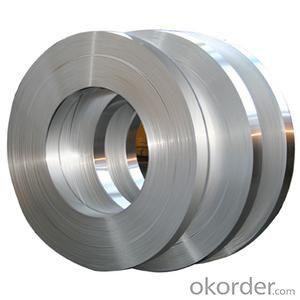Malleable Aluminum Strips for Anodic Oxidation
- Loading Port:
- Shanghai
- Payment Terms:
- TT OR LC
- Min Order Qty:
- 2.5
- Supply Capability:
- 5000 m.t./month
OKorder Service Pledge
OKorder Financial Service
You Might Also Like
Specification
Aluminum Alloy Strip for Anodic Oxidation
lProduct Information
Specifications:
Grade: 1000 series 1050 1060 1070 1100 1200
Temper: any temper
Type: coil/roll
Thicknesses: 0.2-4mm
Widths: 10-1500mm
Length: According to your requirement
Alloy or not: non- alloy
Surface: mill finish, nature
Certifications: SGS, ISO 9001:2008
Payment terms: L/C; T/T
Price terms: FOB CIF
Applications:
Construction, decoration, pipe, packaging, automobile, air conditioning, pot containers, refrigeration, electrical and electrical products and more
Packaging & shipment:
Standard seaworthy packing
About 25 days after received your advance
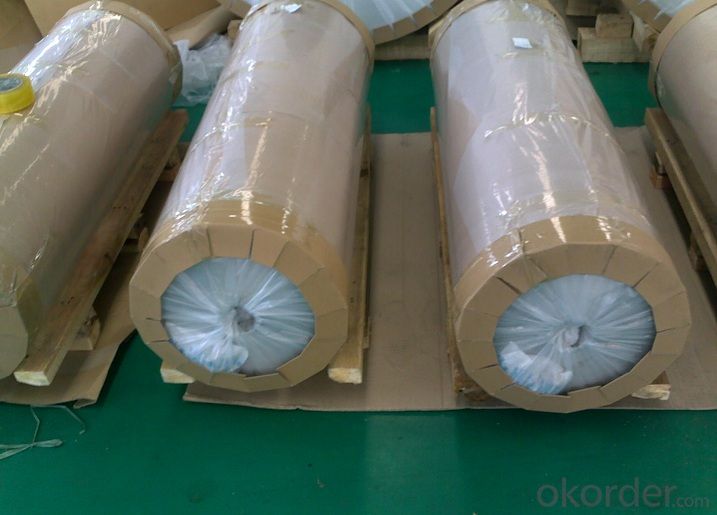
lCompany Profile
CNBM International Corporation, China National Building Materials (Group) Corporation, is one of the largest companies in China building
material & equipment industry, with 42,800 employees and sales in 2005 of US Dollar 4.395 billion. In 2006, China National Building Material Company Limited was listed on Hong Kong Stock Market with the stock code as 3323.
CNBM has been involved in aluminium products for about a decade. With advanced technology and equipment, our products have been sold to the worldwide including America, Europe, as well as South Asia, etc.
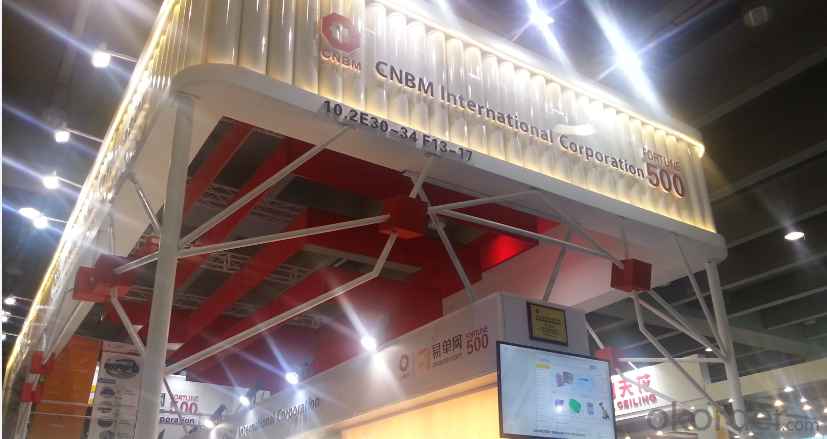
lProduct Images
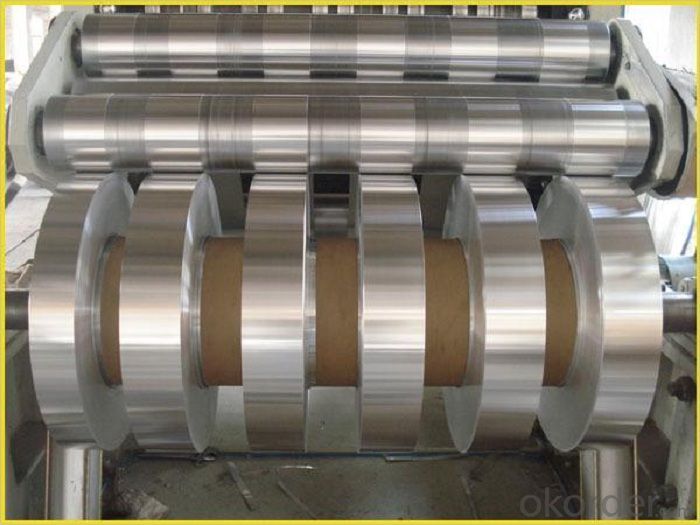
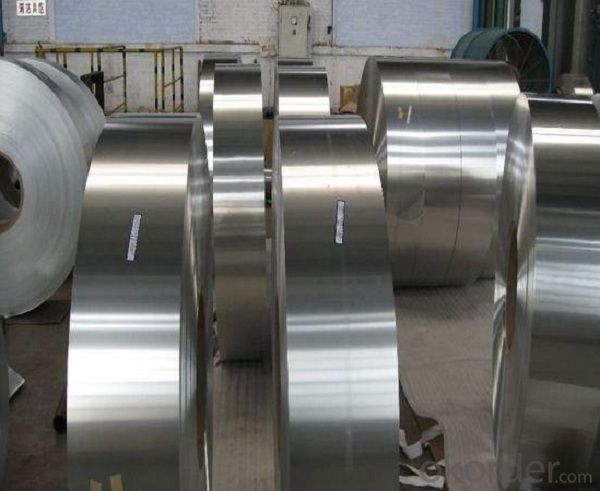
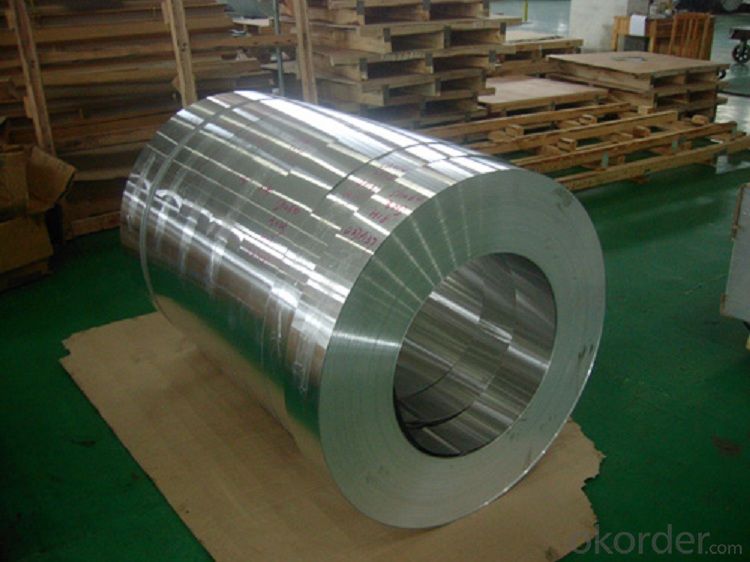
lCertificates
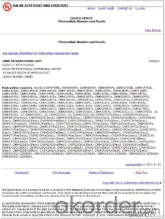
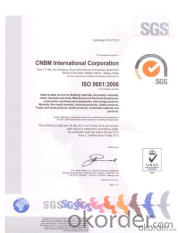
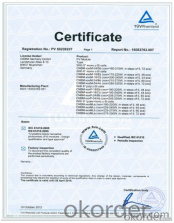
lFAQ
Q: Do you provide free samples?
A: Yes, free samples will be sent to you on freight at destination.
Q: Can I get your latest products catalogue?
A: Yes, it will be sent to you in no time.
Q: What is the MOQ?
A: 2.5 tons
- Q: This question asks for guidance on selecting a dependable supplier for aluminum strips, implying the need for criteria to evaluate supplier reliability.
- <p>To choose a reliable supplier of aluminum strips, consider the following: Check their reputation and industry experience. Ensure they have certifications for quality management systems like ISO 9001. Look at their product quality, consistency, and adherence to industry standards. Evaluate their delivery times and reliability. Assess their customer service and after-sales support. Investigate their financial stability to avoid potential risks. Request references from current or past clients to gauge their performance. Finally, consider the supplier's ability to scale up production to meet your growing needs.</p>
- Q: This question asks about the various forms or configurations that aluminum strips can take in terms of their shape.
- <p>Aluminum strips are available in various shapes to meet different industrial and manufacturing needs. Common shapes include rectangular, square, and circular strips. Rectangular strips are the most common and can be found in various thicknesses and widths. Square strips are less common but still used in specific applications. Circular strips, also known as aluminum wire, are used in electrical applications and other areas requiring a round cross-section. Other shapes like triangular, hexagonal, or custom profiles can also be produced but are less standard and typically require specialized manufacturing processes.</p>
- Q: Is it possible to use aluminum strips for the exterior cladding of a building's walls?
- <p>Yes, aluminum strips can be used for exterior wall cladding. They are lightweight, durable, and resistant to weather and corrosion, making them suitable for exterior applications. Aluminum strips can also be painted or coated to match various architectural styles and can be easily installed. However, it's important to ensure that the aluminum is of high quality and properly installed to prevent issues like water infiltration or structural damage. Always consult with a professional to determine if aluminum strips are the best choice for your specific project.</p>
- Q: Is it possible to install aluminum siding on a historic building without compromising its aesthetic or structural integrity?
- <p>Using aluminum siding on a historic building can be done without damaging its appearance or structure if done correctly. It's crucial to ensure that the siding is installed in a manner that respects the building's historical integrity. This often means using siding that closely matches the original materials in terms of color and texture, and installing it in a way that doesn't alter the building's structural elements. Consulting with historic preservation experts and adhering to local preservation guidelines is essential to maintain the building's historic character while providing the benefits of modern siding materials.</p>
- Q: This question asks for a comparison of the pros and cons of using aluminum strips as a material for exterior cladding on buildings.
- <p>Aluminum strips for exterior cladding offer several advantages, including their lightweight nature, which reduces structural load. They are also resistant to corrosion, making them suitable for various climates and weather conditions. The ease of installation and maintenance is another benefit, as aluminum is less prone to damage and requires minimal upkeep. Additionally, aluminum strips can be easily recycled, contributing to sustainability efforts. However, there are disadvantages such as the potential for thermal expansion, which can lead to buckling or distortion over time. Aluminum may also dent or scratch more easily than some other materials, and it can conduct heat and cold, potentially leading to energy inefficiency. Lastly, while it is cost-effective in the long run, the initial installation cost can be higher compared to some traditional materials.</p>
- Q: What types of aluminum strips are best suited for specific applications?
- <p>Yes, there are various types of aluminum strips tailored for specific purposes. For instance, 1100 series aluminum strips are known for their high ductility and are often used for deep drawing applications. 3003 series is popular for its corrosion resistance and is commonly used for chemical equipment and food processing. 5052 series offers good formability and is used in marine applications and aircraft structures. 6061 series is strong and often used in structural applications such as truck beds and window frames. Each type has distinct properties that make it suitable for different industries and applications.</p>
- Q: This question asks for a comparison between recycled aluminum strips and new ones regarding their quality and performance.
- <p>Recycled aluminum strips are generally comparable to new ones in terms of quality and performance. The recycling process allows for the recovery of aluminum's properties, maintaining its strength, durability, and malleability. In fact, recycled aluminum can be just as strong as new aluminum, and it often requires less energy to produce. However, the quality can depend on the recycling process and the source material. Properly recycled aluminum can be just as good as new, but improper recycling or contamination can affect the final product's quality. Overall, recycled aluminum is a sustainable and often equivalent alternative to new aluminum in many applications.</p>
- Q: Is it possible to use aluminum strips for creating electrical connections?
- <p>While it is technically possible to use aluminum strips to make electrical connections, it is not generally recommended due to several reasons. Aluminum has a higher electrical resistance compared to copper, which is the standard material for electrical wiring. It is also more prone to corrosion and can form aluminum oxide, which is an insulator, leading to poor connections over time. Additionally, aluminum expands and contracts more than copper with temperature changes, which can cause connections to loosen. For reliable and safe electrical connections, copper or other approved materials should be used.</p>
- Q: This question asks for methods to identify if the roof material is aluminum strips.
- <p>To determine if your roof is made of aluminum strips, you can look for the following characteristics: 1) The roof has a shiny, metallic appearance, which is typical of aluminum. 2) The strips are lightweight and flexible, making them easy to handle. 3) They are often interlocking, which is a common feature of aluminum strip roofing. 4) Check for any manufacturer's markings or labels that might indicate the material. If you're unsure, a professional roof inspector can help confirm the material by examining the roof closely or taking a small sample for testing.</p>
- Q: This question asks for the primary applications or purposes of using aluminum strips.
- <p>Aluminum strips are primarily used in various industries due to their lightweight, corrosion resistance, and high strength-to-weight ratio. They are commonly used in construction for framing and cladding, in the automotive industry for vehicle bodies and parts, in aerospace for aircraft components, and in electrical applications for wiring and conductors. Additionally, aluminum strips are employed in packaging, such as food and beverage cans, and in the manufacturing of electronic devices and heat exchangers. Their versatility makes them a popular choice for many applications where durability and performance are required.</p>
Send your message to us
Malleable Aluminum Strips for Anodic Oxidation
- Loading Port:
- Shanghai
- Payment Terms:
- TT OR LC
- Min Order Qty:
- 2.5
- Supply Capability:
- 5000 m.t./month
OKorder Service Pledge
OKorder Financial Service
Similar products
Hot products
Hot Searches
Related keywords
